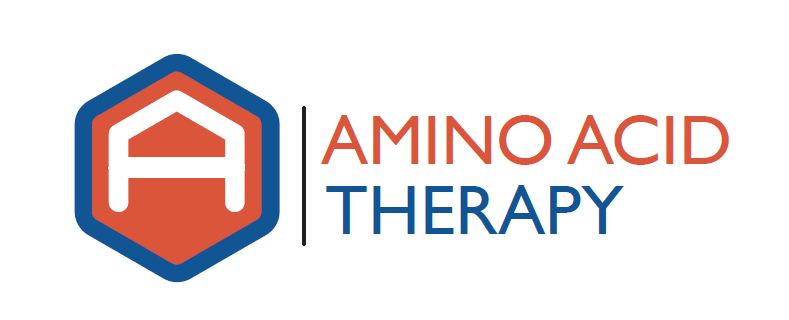by aatadmin | Feb 1, 2017 | Amino Acid Therapy, Neurotransmitters, Symptoms of Neurotransmitter Imbalance
 We help a lot of people resolve their symptoms related to neurotransmitter imbalances using amino acid therapy. Occasionally, a person whose symptoms have been under control for several weeks or months will find that their symptoms have returned. There are usually two common reasons for this. (more…)
We help a lot of people resolve their symptoms related to neurotransmitter imbalances using amino acid therapy. Occasionally, a person whose symptoms have been under control for several weeks or months will find that their symptoms have returned. There are usually two common reasons for this. (more…)
by aatadmin | Aug 25, 2016 | Amino Acid Therapy, Neurotransmitters
 Parkinson’s disease is a progressive neuro-degenerative disease. That is, the disease progresses as more and more neurons are destroyed. The ideal approach is to catch the disease as early as possible so that full function can be restored. This occurs when there are enough dopaminergic neurons remaining, that when given the proper amount and balance of amino acid precursors, are able to compensate for the damage.
Parkinson’s disease is a progressive neuro-degenerative disease. That is, the disease progresses as more and more neurons are destroyed. The ideal approach is to catch the disease as early as possible so that full function can be restored. This occurs when there are enough dopaminergic neurons remaining, that when given the proper amount and balance of amino acid precursors, are able to compensate for the damage.
However, without proper intervention, the neurodegenerative process will continue. If enough dopaminergic neurons are destroyed, no amount of amino acids will be able to completely restore proper function. Unfortunately, this often occurs when people with Parkinson’s disease attempt to exhaust all other options before implementing amino acid therapy. While these people benefit greatly from amino acid therapy, most do not achieve complete relief of symptoms due to the extent of the neurodegeneration.
Therefore, a person with Parkinson’s disease should implement a course of properly guided amino acid therapy as soon as possible to obtain optimal results. All other therapy options are associated with a progression of the disease. Unlike the medical approach of using L-DOPA/carbidopa, amino acid therapy needs to be implemented as early as possible to optimally manage the symptoms of Parkinson’s disease.
For more information on Amino Acid Therapy and Parkinson’s, click here.

by aatadmin | Aug 11, 2016 | Neurotransmitters
Neurotransmitters are a class of chemical messengers in the body that help regulate many body functions. Most people have heard of several common neurotransmitters, including serotonin, dopamine, norepinephrine and epinephrine (also known as adrenaline) and are familiar with some of their functions in regards to mood and sleep. What many people do not know is that your neurotransmitter balance may dramatically affect your ability to lose and maintain your weight.
Neurotransmitters, Cravings & Addictions
Neurotransmitters not only regulate your mood and hormone levels, they also directly impact your appetite, cravings and sleep. More specifically, if your serotonin levels are low, not only will your mood suffer, you will also be much more likely to crave carbohydrates, especially in the mid‐afternoon and evening. This will make it particularly difficult to lose weight, because your will power is no match for your brain chemistry and you will eventually ‘blow’ a diet and give into the cravings.
Once more, low dopamine levels can cause binging behavior, and are at the root of many addictive‐type behaviors ‐ including addictions to various foods, alcohol, drugs, and actions ‐ all of which will thwart any attempt at losing weight through traditional weight loss methods. In addition, low dopamine levels will dramatically increase your appetite, so you will want to (and eventually will) eat more than your bodily needs warrant, causing you to gain weight.
The key to being able to reduce and eliminate your cravings and appetite is often found in rebalancing your neurotransmitters. This begins with identifying if any of the factors above are at the root of your imbalances so we can prevent further depletion. Next, we must give the body the nutrients it needs to restore your neurotransmitter levels.
Neurotransmitters are made in the body from specific amino acids and cofactors, like B‐vitamins, selenium, and other vitamins and minerals. Given the right proportions of each of these nutrients at the right time, the body will make the neurotransmitters it needs.
By identifying and addressing your neurotransmitter levels you can effectively and efficiently control your cravings and appetite in addition to eliminating depression, helping improve your quality of sleep and rebalancing your hormone levels.


by aatadmin | Jul 19, 2016 | Amino Acid Therapy, Neurotransmitters
Neurotransmitters are a class of chemical messengers in the body that help regulate many body functions. Most people have heard of several common neurotransmitters, including serotonin, dopamine, norepinephrine and epinephrine (also known as adrenaline) and are familiar with some of their functions in regards to mood and sleep. What many people do not know is that your neurotransmitter balance may dramatically affect your ability to lose and maintain your weight.
(more…)

by aatadmin | Jun 14, 2016 | Amino Acid Therapy, diabetes, fibromyalgia, nerve pain, Neurotransmitters
Amino acid therapy involves the therapeutic use of specific amino acids and cofactors to help reestablish proper neurotransmitter function. Amino acid therapy is commonly used to help with symptoms associated with depression, anxiety, insomnia, migraines, compulsive behaviors, trichotillomania, addictions, restless legs and even Parkinson’s disease.
(more…)

by aatadmin | May 25, 2016 | Amino Acid Therapy, Neurotransmitters
When most people think about neurotransmitter imbalances, they think of things like depression, insomnia and obsessive-compulsive disorders. That’s because the medications used to treat these disorders often try to shuffle around neurotransmitters in an attempt to relieve symptoms.
However, many, many disorders may have neurotransmitter imbalance as a key underlying cause, including not only those listed above, but also migraine headaches, memory issues, poor focus and concentration, restless legs, hormone imbalances, fatigue, Parkinson’s disease and even some gastrointestinal imbalances like Crohn’s disease. In order to achieve a lasting solution we must heal the underlying causes of any chronic illness. For the conditions listed above, this usually means we have to restore neurotransmitter levels using amino acid therapy.
Causes of Neurotransmitter Imbalance
There are numerous possible reasons and ways neurotransmitter function can be compromised, including stress, toxic burden, head or neck trauma, nutritional deficiency, chronic pain, genetics and certain medications. Most people are affected by several of these at once, and once neurotransmitter function is sufficiently impaired, symptoms develop.
Even though there are many possible causes of neurotransmitter imbalance, there are really only two major effects on the body. There is either (1) neurotransmitter depletion and/or (2) damage to the post-synaptic neuron. In the first case, restoring optimal neurotransmitter levels and stores using amino acid therapy can quickly and effectively eliminate the nutritional deficiency and alleviate symptoms. In the second, amino acid therapy can often overcome the damage to the neurons and improve if not restore proper function.
Using Amino Acid Therapy to Restore Neurotransmitter Function
Neurotransmitter imbalances can cause a whole host of symptoms, ranging from depression and anxiety, to migraine headaches, hormone imbalances and cravings. The reason for this is that neurotransmitters are chemical messengers that your brain and body uses to send and receive vast amounts of information on a daily basis. Imbalances in this communication system lead to miscommunication, which you experience as symptoms.
By restoring proper neurotransmitter function using amino acid therapy, we can help improve and optimize communication, which will alleviate the symptoms related to neurotransmitter imbalance. Amino acid therapy can provide a very effective way for many people to heal a key underlying cause of whatever chronic condition or illness they have and provide a safe and effective way to alleviate their symptoms.

 We help a lot of people resolve their symptoms related to neurotransmitter imbalances using amino acid therapy. Occasionally, a person whose symptoms have been under control for several weeks or months will find that their symptoms have returned. There are usually two common reasons for this. (more…)
We help a lot of people resolve their symptoms related to neurotransmitter imbalances using amino acid therapy. Occasionally, a person whose symptoms have been under control for several weeks or months will find that their symptoms have returned. There are usually two common reasons for this. (more…)







